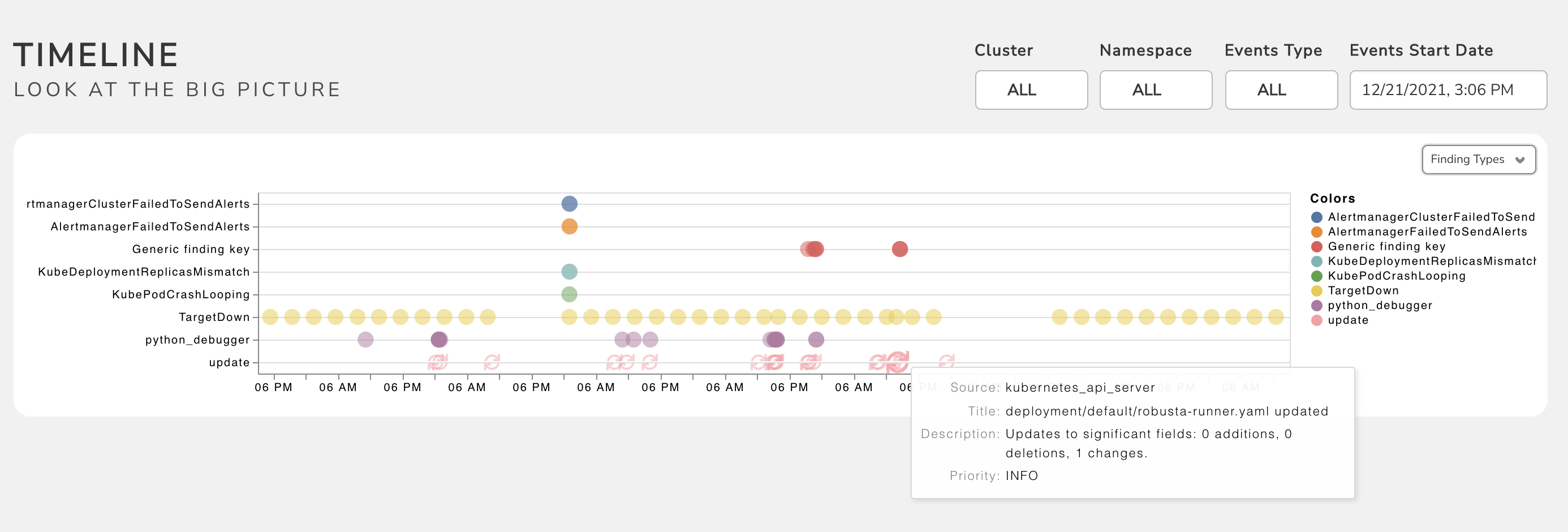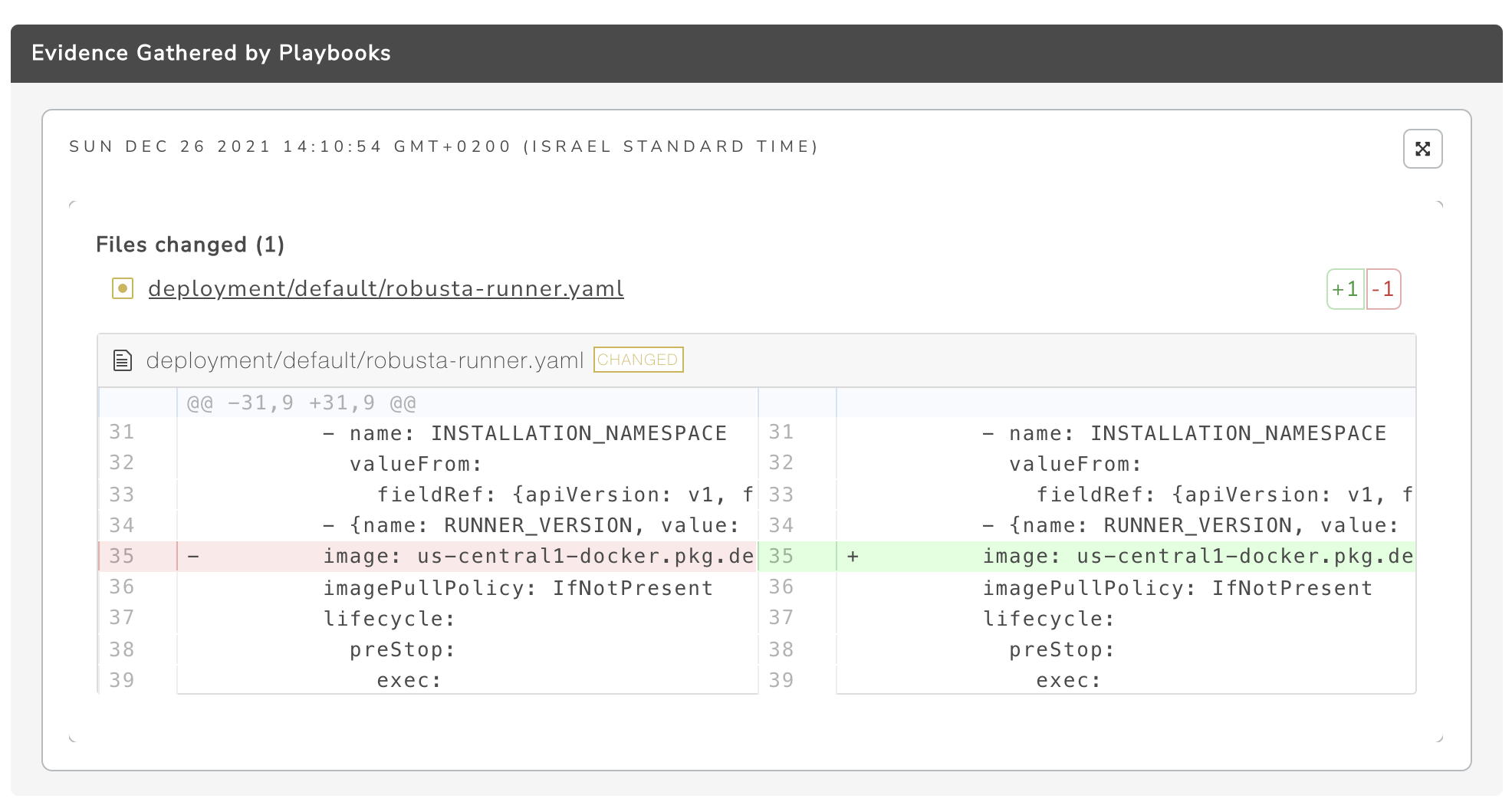Example Playbook¶
Robusta needs rules to tell it what to do. These rules are called "playbooks".
On this page, we configure a new playbook that monitors deployments. It will notify in Slack every time the number of replicas changes.
Enabling the playbook¶
Playbooks are configured with the customPlaybooks helm value.
Add the following to
generated_values.yaml:
customPlaybooks:
- triggers:
- on_deployment_update: {}
actions:
- resource_babysitter:
fields_to_monitor: ["spec.replicas"]
Perform an upgrade with Helm to apply the new configuration
helm upgrade robusta robusta/robusta --values=generated_values.yaml
Seeing the Playbook in action¶
Scale one of your deployments:
kubectl scale --replicas NEW_REPLICAS_COUNT deployments/DEPLOYMENT_NAME
Check the slack channel you configured when installing Robusta:

If you setup Robusta UI, it will appear in the timeline of all alerts and changes:

You can click to see the diff:

How the playbook works¶
Every playbook configuration has three parts.
- triggers:
We chose
on_deployment_updateso our playbook runs every time deployments are updated- actions:
We chose Resource babysitter which is a builtin action. That action has a parameter
fields_to_monitor.- sinks:
We didn't configure any sinks, so output is sent to the default sink. This is usually Slack and/or the Robusta UI.
Further customization¶
Try changing the configuration to monitors changes to a deployment's image tag.